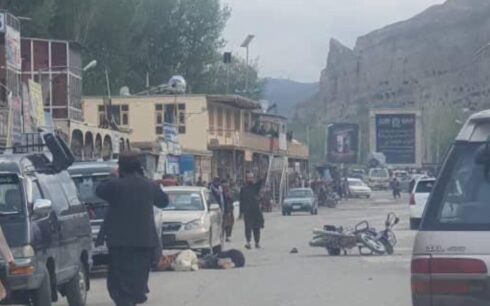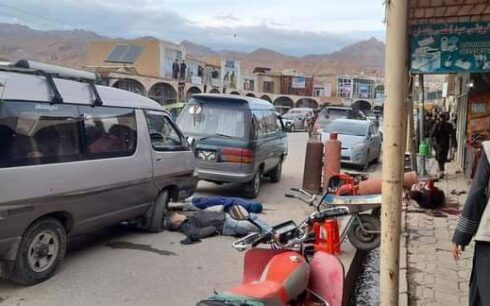Twenty-three years ago today, on October 7, 2001, US-led allies launched attacks on Afghanistan, in the name of counter-terrorism – as the country served as a safe haven for terrorist groups including al-Qaeda.
The attack came just weeks after the 9/11 incident, in which over 2,900 people, mostly Americans, were killed and scores of others were wounded. The attack was claimed by the al-Qaeda network.
The attacks began right after the Taliban refused to hand over Osama bin Laden, the founder and former leader of al-Qaeda to Washington.
The US president at the time, George W. Bush appeared at a press conference and announced that US forces had launched air strikes on al-Qaeda and Taliban.
“On my orders, the United States military has begun strikes against the al-Qaeda terrorist training camps and military installations of the Taliban regime in Afghanistan. These carefully targeted actions are designed to disrupt the use of Afghanistan as a terrorist base of operations,” he said.
The US war which was backed by its allies, opened a new chapter for both Afghanistan and America. The Taliban’s then regime was overthrown and a western-backed republic government was established. The US then went on to wage its longest war in history as fighting continued around the country.
Eventually, Washington engaged in talks with the Taliban in Doha that resulted in the signing of a peace deal between the two-warring parties in February 2020 – having cut the incumbent government of Afghanistan out of the talks.
In August 2021, Major General Chris Donahue, became the last US service member to leave Afghanistan.
However, the UN Security Council’s reports noted that the Taliban and al-Qaeda still have close relations.
The Taliban’s deputy prime minister for political affairs, said a while back that handing over bin Laden to the US had been a matter of “honor” for Mullah Mohammad Omar Mujahid, the founder and former reclusive leader of the Taliban.
“This was first an issue of honor for our Amirul Momineen [Mullah Omar]. He didn’t leave behind an issue of honor in the history for the Muslims—which is that a Muslim was handed over to the infidels. Even if this Muslim [bin Laden] was to have left Afghanistan of his own willingness, the US would still have attacked Afghanistan,” Kabir told a gathering in Kabul in July this year.
The US led war against the Taliban left nearly 2,500 of American service members dead and around 20,000 others wounded. The war also took a heavy toll on the people of Afghanistan.
Bin Laden was killed in a special forces operation near Islamabad in Pakistan in May 2011.
The UN and other international organizations as well as regional countries have constantly raised their concerns over the presence of more than 20 different terrorist groups in Afghanistan under the current rule of the Taliban.
Mohammad Radmanish, a political analyst, told Amu that the Taliban lacks a plan to fight terrorism.
“Rising concerns regarding the existing security issues shows that without regional cooperation, the Taliban lacks any plan to counter terrorism,” he said.
The US and its allies invested hundreds of millions of dollars to support a democratic state in Afghanistan including ensuring human rights and women’s rights. However, Afghanistan is facing multiple crises, including political, economic and social, while the Taliban continue to impose their repressive policies.
“Lack of sincerity of the Taliban’s leader and the international community in fighting against terrorism led Afghanistan to become a safe-haven for the terrorists and extremists once again,” said Akmal Baqa, a political analyst.
In August 2022, US President Joe Biden said in a live address that the co-founder and former leader of al-Qaeda, Ayman al-Zawahiri had been killed in a US airstrike in Kabul. He had been harbored by the Taliban in Sherpoor, an upmarket and secure neighborhood in the capital.
The Taliban’s spokesman, Zabiullah Mujahid meanwhile said in a statement that October 7 was a “dark” day in the country’s history.





